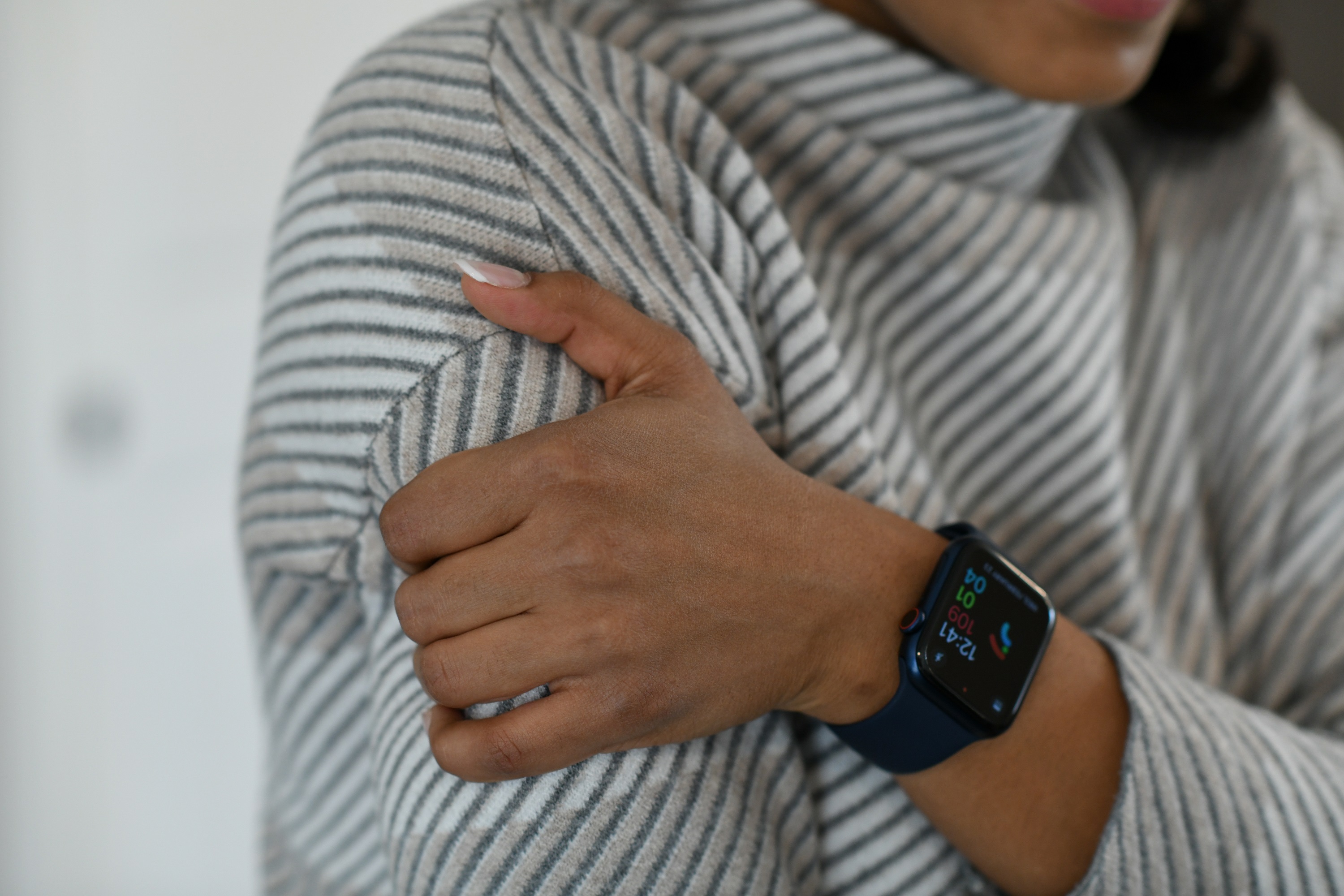Why Does Your Arm Hurt After a Shot?

March 16, 2022
The most common side effect after a vaccine is pain or tenderness in your upper arm, but why?
Although this arm pain is expected and temporary, it can interfere with your daily routine and leave you wondering why this happened in the first place.
The truth about arm pain
Pain in the arm is a common side effect of vaccination and is caused by your immune system responding to the vaccine you have received. The pain is usually soreness of the muscle where the injection is given.
When a person receives a shot, a small amount of liquid is injected into the muscle, which basically stretches the muscle fibers, causing some inflammation. This causes pain and discomfort to the injected arm.
“It is normal for some vaccine shots to cause more pain than others such as the COVID-19 vaccine and shingles. Overall, symptoms usually last only a few days and are mild,” says Cristina Cicogna, M.D. an infectious disease specialist at Hackensack University Medical Center.
How to reduce pain after a vaccination?
- Make sure to keep your injected arm moving after the shot since it gets the blood flowing to the injection site.
- Stick to doing lighter exercise and avoid any strenuous effort as you might experience some fatigue or discomfort after your shot. Pay close attention to how you feel.
- Take over-the-counter pain relievers if needed after the shot, such as ibuprofen, acetaminophen or aspirin (but only consider this after you get the vaccine, not before).
- Apply a clean, cool compress or ice pack to help reduce swelling and redness at the injection site.
How to prevent arm pain before getting the vaccine?
- Get the shot in your non-dominant arm.
- Relax your arm and let it loose while getting the shot. Tensing your arm can lead to more pain.
How long does arm pain last?
For most people, arm pain usually lasts for a day or two. While this pain can be frustrating, it’s a sign that the vaccine is working and doing what it’s job - protecting you from serious illness.
Next Steps & Resources:
- Meet our Experts: Cristina Cicogna, M.D.
- To make an appointment with Dr. Cicogna or a doctor near you, call 800-822-8905 or visit our website.
The material provided through HealthU is intended to be used as general information only and should not replace the advice of your physician. Always consult your physician for individual care.
Find a doctor near me
What Are COVID-19 Vaccine Side Effects, and How Long Do They Last?

Here are answers to questions that you may have about COVID-19 vaccine side effects.
Reduce Your Fear of Needles

A fear of needles can seem debilitating. Here are some tips to help overcome the phobia.
Find a doctor near me

Can You Get a COVID Booster and a Flu Shot at the Same Time?
You can get a flu shot and a COVID-19 vaccine at the same time, here's what to expect.

COVID-19 Vaccine and Kids: Safety & What to Expect
COVID-19 vaccines have proven to be safe and effective in kids ages five and older in clinical trials. Here’s what parents should know.

By the Numbers: Getting Ahead of Flu Season
Prevent the flu. Learn about flu vaccines, effectiveness, and prevention tips. Schedule an appointment today by calling 800-822-8905.

Is It Too Late to Get the Flu Shot?
Get your flu shot now! It's not too late for protection against the flu virus. Find a location near you today.
